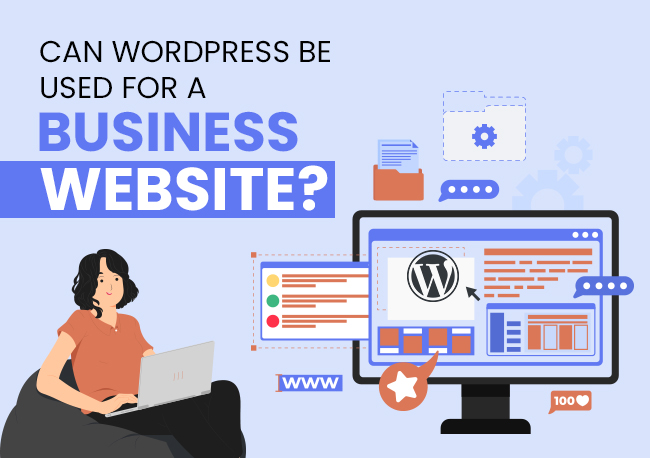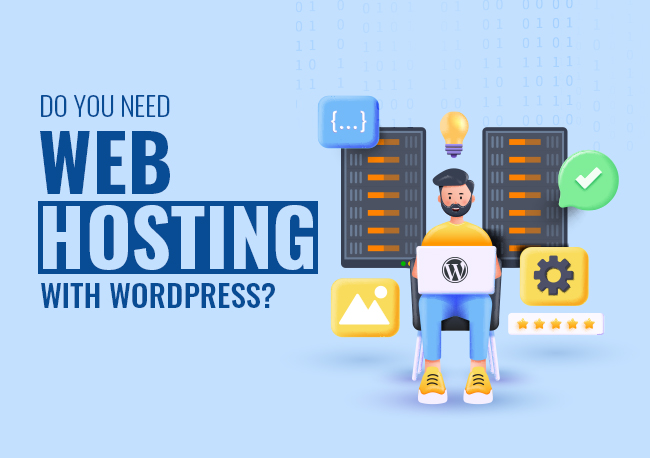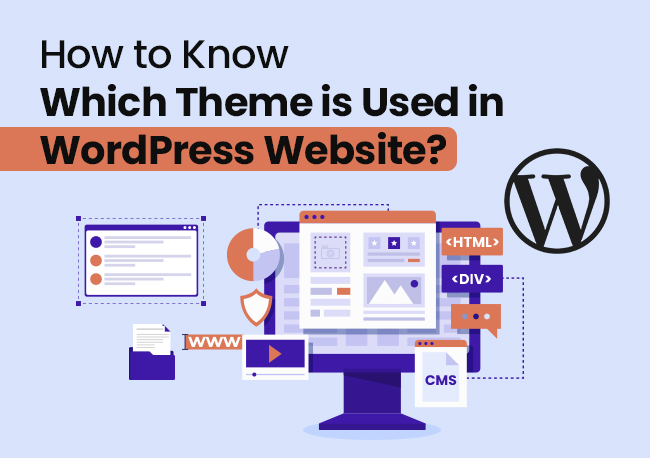If your business has a website, you surely want people to visit your website and buy your products/services. What use is a website that loads slowly or experiences downtime? If people aren’t able to view your website, they won’t see what you offer.
Furthermore, people will question the legitimacy of your company and raise questions about its reputation.
Many fall into the trap of free hosting, thinking it will help them save money and accomplish their goals. They are in for a rude awakening.
Smooth functioning, outstanding performance, and optimal security of your website, plus the relentless customer support, are what will take your business to the next level.
Read: 5 Things Small Business Should Know About Web Hosting
What is web hosting?
 To put it in simple words, a web hosting company provides space for a website to store its files, images, and web-pages on a particular server. These hosting companies are the reason you can view websites on the internet. There are 3 types of web hosting plans.
To put it in simple words, a web hosting company provides space for a website to store its files, images, and web-pages on a particular server. These hosting companies are the reason you can view websites on the internet. There are 3 types of web hosting plans.
- Shared hosting
- VPS hosting
- Dedicated hosting.
We will discuss the same in detail below.
Read: Different Types Of Web Hosting Services – Host IT Smart
What is a Managed WordPress hosting?
For us to understand WordPress web hosting, we need to understand the different hosting plans. First, you have shared hosting. This kind of hosting is perfect for startups and small-sized businesses.
As a new player in the market, you won’t require complex server configuration, extensive resources, root access, and much technical support. Shared hosting will be enough to meet your needs, and it’s cheap.
As your business grows, you might want more features, security, and increased control over your resources to manage the high traffic on your website. Trust me, you would know. There are signs of slow loading speeds, excessive downtime, sizable traffic spikes, etc.
Also, the existing hosting plan won’t be good enough to manage multiple domains, and you will require advanced security features. It’s these signals that scream – Switch to DIY VPS hosting.
DIY VPS WordPress hosting is for those people who don’t want to spend much on hosting, but still, want access to better performance & increased resources. It provides a moderate personalization level and ensures better performance and security—ideal for medium-sized businesses.
Large enterprises and websites that have outgrown DIY VPS hosting are making the move to Managed WordPress hosting. Before getting into the details, let’s understand the difference between managed and unmanaged hosting.
Read: Web Hosting Guide For Beginners
1. Unmanaged hosting
If you’re a DIY (do it yourself) kind of person who has the requisite knowledge, skills, and experience to manage a hosting server, unmanaged hosting is for you. Either that you need to have a technical team who can do it for you. In most cases, the hosting company would only provide you with just a server and an operating system.
You will be responsible for software installation, server management, maintenance, troubleshooting, firewall, security, etc. The most significant advantage of an unmanaged server is that it’s cost-effective. However, your technical team should be up to the task, and your task should have a weekly standup to keep on track.
All you get is an operating and various software needed to carry out essential tasks to meet business demands. You need to be on top of things to manage all the technical aspects.
All this could easily backfire and result in unwanted costs or expenditures if the responsibility of server maintenance and website security is not executed correctly. Hiring external help to clean up the mess would defeat the purpose of unmanaged hosting.
2. Managed Hosting
People who don’t want to get into the hassle of server installation, management, maintenance, upgrades, updates, and disaster recovery should opt for managed hosting.
With a managed hosting plan, you have a server, operating system, various software, and different components that you require for meeting specialized business needs. Depending on the client’s requirements, the hosting company will offer the choice of multiple hosting packages that include many services. Let’s look at some of the most popular services.
- Regular and automated backups
- Automatic software updates
- Security scans & malware removal
- Performance monitoring
- Convenient control panel
- SSH (secure shell) access
- Backend support
Besides the services mentioned above, many companies require additional support to run their business. The same is listed below.
- On-demand services
- Remote rebooting
- Load balancing
- Intrusion detection
- Carrier-neutral connectivity
- IMAP (Internet message access protocol) , POP (Post office protocol) , SMTP (Simple mail transfer protocol) , E-mail services.
As you can see, managed hosting is beneficial for those who want to focus on core business operations without worrying about technical issues. However, the cost can be a deterrent for those who are on a budget.
Don’t think about saving money at the cost of features. If you want optimal results, you would have to shell out the money. Another downside is that you can only run WordPress websites. Often, you might have to face restrictions about running specific plug-ins if caching is in place.
Most of these restrictions are to ensure the smooth functioning of your website and prevent security issues. However, some clients who run unorthodox or unique websites might find it to be an impediment.
Read: How To Host A Website In Simple Steps
Benefits of Managed WordPress Hosting
1. Exceptional support
All hosting companies offer support, depending on the plan and the package chosen by the client. As the WordPress site owner, you would require a certain level of expertise and precision from your hosting provider.
A managed WordPress hosting provider would have exhaustive knowledge of WordPress and can handle problems with framework, plugins, downtime, etc. Any queries you may have related to WordPress, you will get proper answers.
You are guaranteed to get 24/7 backend support with managed hosting. They respond to both calls and tickets. It can be a lifesaver when you face problems at odd hours of the day. You won’t have to experience loss of productivity, revenue. Nor would you have to deal with angry customers.
2. Staging sites
Never make the mistake of making vital changes to your live site. One minor error, and your website can crash in the blink of an eye. To prevent this, we advise making changes in the staging environment.
A staging environment is an identical replica of your main website. You can make the desired changes to it and see if it works out. Once you’re satisfied with the outcome, you can apply the same changes to your primary website.
If you’re not happy with the outcome of your staging environment, there is no need to despair because your principal site remains unaffected. Its functionality and performance won’t be affected.
Like the staging site, local development is another feature that allows you to make changes outside of your production environment. The first stage is affecting changes in a local environment, followed by testing and then going live if it meets all the criteria.
Managed hosting providers are familiar with these aspects of development, and they will provide you with the requisite tools to meet your needs. If needed, they also communicate with your clients and internal departments in your organization to ensure clarity.
3. Formidable security
If your business is online, security should always be your number one priority. Having a managed WordPress hosting plan in place doesn’t mean your website is immune to threats on the internet, but it indeed provides you with robust security.
Managed hosting providers have their servers optimized for WordPress websites, which means you don’t have to worry about security plugins. Additional protection measures include password protection, two-factor authentication, and limited login attempts.
Malware removal and virus protection are crucial aspects of managed WordPress hosting’s security. If hacking is attempted or virus outbreaks on your server, they will jump into action and neutralize the threat.
Finally, automatic backups will ensure that you can restore your site to its original state in a single click if it crashes or starts malfunctioning.
Read: Website Safety With Secure Hosting
4. Impressive add-ons
Security and top-notch website performance can do wonders for your business but managed WordPress hosting also offers a host of other amazing tools that can make your life easier. Aspects like client coordination, inter-departmental communication would be handled by the hosting provider.
Each WordPress hosting provider will have a distinct set of workflow tools and collaboration features, but you need to choose the best ones that would benefit your business and deliver best performance.
5. Resell hosting options
As of 2020, over 455 million websites are powered by WordPress. 455 million is not a small number, it is approximately 35% of websites worldwide. If you ever decide to resell your hosting, then having a WordPress website would benefit you
Read: WordPress.Com Vs WordPress.Org – What’s The Difference?
In fact, many hosting providers even have incentives like partner programs, referral programs in place, add-ons for those who wish to sell their website hosting. This is a win-win situation for all. Hosting providers can sell individual chunks of hosting to newer clients while you get a good sum for your hosting.
6. Developer tools
Easy access to development tools makes it easy for you to create a brand new website or improve an existing one. If your developer team wants to learn the ropes and become proficient in server management, a managed WordPress hosting provider furnishes you with developer tools that will help you accomplish the task.
Along with elementary tools like SFTP, data access plus error/access logs, you also get SSH, GIT, staging, WP-CLI, PHP extension support, and much more.
With so many development tools at your disposal, it enables you to make the demands of multiple clients and projects with a structured development workflow.
7. SEO and performance optimization
A fast loading and well-performing website is mandatory to excel in business. Nobody wants to visit a sluggish, or slow-loading website. It will dissuade them from coming back and they won’t recommend it to anyone else either.
Moreover, if your site is slow, it will cause a drop in search engine rankings. Google penalizes slow-loading websites. A managed WordPress hosting provider will eliminate such problems because he will handle everything required to boost SEO rankings and performance optimization.
Managed hosting providers accomplish the above objectives with server-side caching, WordPress infrastructure, powerful servers, higher PHP memory limit, boosting SSD hard-drive speeds, and resource compression.
Read: What Does Your Web Host Have To Do With Your SEO?
8. Easy incorporation of SSL certificates
Making the journey from HTTP to HTTPS is what separates the kings from the peasants in the online world. Jokes apart, does your website display a message saying “Your connection is not secure” when visitors try to access your website?
Such a warning message will put off people and dissuade them from visiting your website. You need an SSL certificate. Managed WordPress hosting makes it easy for you to add an SSL certificate to your website with a single click.
Managed hosting providers have played an instrumental role in making SSL certificates accessible to website owners along with facilitating easy installation. Now, it’s seen as the best industry practice and most managed hosting providers offer it free of charge. Even websites that require advanced SSL certificates can get it with little hassle.
Read: 9 Types Of SSL Certificates – Make The Right Choice
9. Efficient site management
A WordPress hosting provider is a one-stop solution for all your hosting needs plus technical maintenance. There would be no need to contact various application or software vendors and spend endless hours coordinating with them.
10. Everything will be stored in a single repository,
A WordPress hosting provider is one stop solution for all your hosting needs plus technical maintenance. There would be no need to contact various app or software vendors and spend endless hours coordinating with them.
Everything will be stored in a single repository and this will help you save time and money. This will prove useful when you’re dealing with multiple clients and building websites for them.
Apart from having all your resources in one place, managed WordPress hosting also ensures that your website stays updated at all times plus they also manage additional tasks like PHP updates, WordPress core updates and also theme, plugin updates at times.
As a business owner, you don’t have to stress over site management or website updates and it will allow you to focus on more productive tasks.
11. Fewer plugins
Plugins are good, but too many of them are bad for your business. Managed WordPress hosting providers will handle security, maintenance, caching, and site optimization. Hence, you don’t have to install tons of plugins like before. Updated plugins will contribute to improved performance and site security.
Do you need Managed WordPress hosting service?
Now that you know everything about Managed WordPress hosting, you need to ask yourself if you really need Managed WordPress hosting. Ask yourself these questions.
- Do you have the technical knowledge to manage hosting?
- Do you require the flexibility, scalability, and customization that managed hosting offers?
- Do you require continuous technical support?
- Are you ready to make the increased investment?
In the absence of necessary technical support and the knowledge to manage hosting servers & aspects associated with it, consider managed hosting. It allows you to concentrate on core business activities while the hosting provider handles server management and other technical aspects. The cost is higher than unmanaged hosting. Enjoy premium services for those extra bucks. It is as simple as that.
If more freedom, flexibility and control is what you want, unmanaged hosting is a great option for you. However, you would get no help with tasks like server maintenance, installation, configuration, etc. You would be on your own. If you or your team wants to learn about hosting and become self-sufficient, this could be a blessing.
Deciding between the two is just the beginning of the battle. There is a lot more to be done. Each of these options can be personalized further to meet your specific business needs. Understand your needs, budget,
and decide accordingly.
Read: Guide For Non-Techies To Build A WordPress Website
Choose the right managed hosting provider
Again, you would have to conduct some self-analysis to get answers to your questions.
- What exactly does your website need?
- How much traffic does your website attract right now?
- Do you think your website will experience increased traffic?
- Do you need access to developer tools?
- Do you require more flexibility and scalability?
- Is customer support extremely important for you?
- What do you expect from a hosting provider?
When you ask yourself these questions truthfully, you will understand what you need and what you expect from your web hosting provider. Once you have that out of the way, you need to compare the services that various hosting companies offer, the pricing, customer support, etc.
After proper comparison and analysis of different companies, you can decide which one is the best fit for your business.
Read: Using WordPress For Your Next Website Project? Understanding Its Pros And
Conclusion
With so many choices, it’s not surprising if you get confused. WordPress websites are a popular choice for millions of people worldwide and many websites are created keeping in mind the functionality of WordPress websites. Furthermore, hosting plans will vary depending on client requirements.
Managed hosting is a splendid choice if you have the budget for it. It will take your mind off technical issues and focus on client servicing and business development. If you’re on a tight budget or if other hosting plans can suffice your needs, you can skip managed hosting.
Business owners who don’t want to spend more on hosting or can do without extensive support, server maintenance, installation, etc can opt for unmanaged hosting. Both managed and unmanaged hosting have their pros and cons. Examine all aspects of your business, understand your needs and make the right choice.




